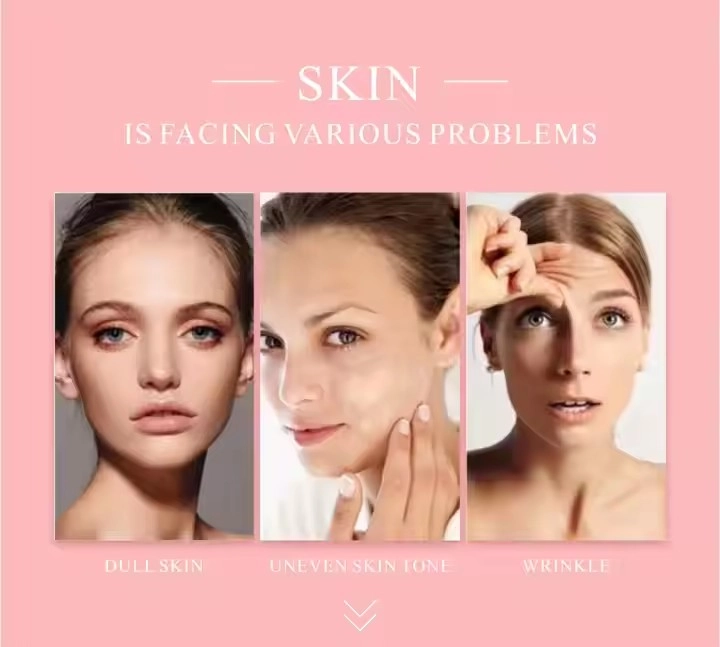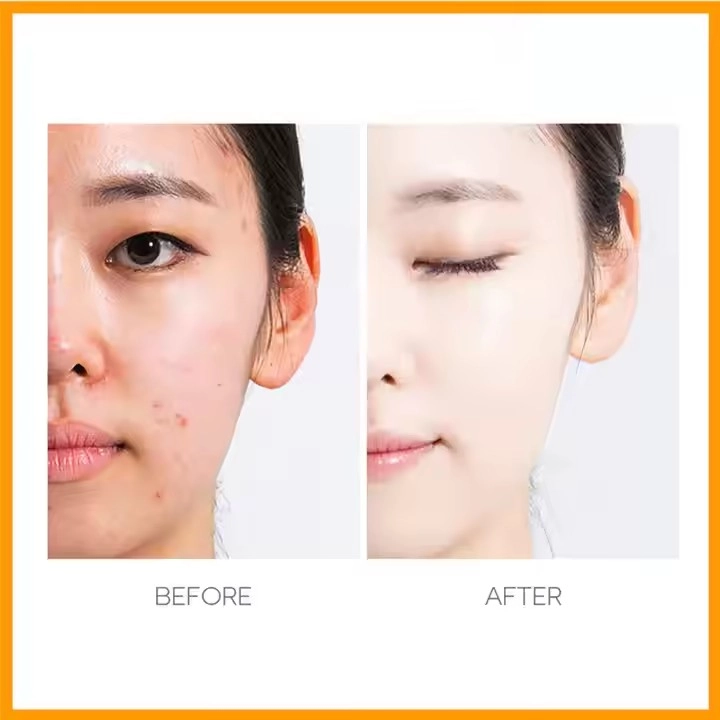Views: 220 Author: cosmeticsinhot Publish Time: 2025-10-20 Origin: Site








Content Menu
● Understanding OEM Skin Care Manufacturing
>> What Is OEM Skin Care Manufacturing?
>> Difference Between OEM, ODM, and Private Label
● Advantages of Using OEM Skin Care Manufacturers
>> Expertise and Advanced Technology
>> Cost Efficiency and Scalability
>> Customization and Flexibility
>> Quality Assurance and Compliance
● Key Considerations When Choosing an OEM Skin Care Manufacturer
>> Assess Manufacturing Capabilities
>> Evaluate R&D and Formula Development Support
>> Review Quality Certifications and Regulatory Adherence
>> Analyze Packaging and Design Services
>> Communication and Customer Support
● How OEM Skin Care Manufacturers Support Brand Growth
>> Accelerating Product Innovation
>> Expanding Product Range with Minimal Investment
>> Facilitating Global Market Entry
● Common Types of OEM Skin Care Products
>> Sunscreens and Sun Protection
● Challenges OEM Clients May Face and How to Overcome Them
>> Ensuring Product Differentiation
>> Managing Minimum Order Quantities (MOQ)
>> Intellectual Property Protection
● Future Trends in OEM Skin Care Manufacturing
>> Demand for Natural and Sustainable Products
>> Personalization and Smart Skin Care
>> Digitization and Supply Chain Transparency
● Frequently Asked Questions About OEM Skin Care Manufacturers
In the booming global skin care industry, businesses increasingly turn to OEM (Original Equipment Manufacturer) skin care manufacturers to develop and produce their products. This strategic choice supports brand owners in enhancing their competitiveness, reducing costs, and accelerating market entry. This article explores why choosing OEM skin care manufacturers is an advantageous path for entrepreneurs, brands, and retailers interested in expanding their skin care product lines.

OEM skin care manufacturing involves outsourcing the production of skin care products to a specialized manufacturer. These manufacturers use their expertise, facilities, and resources to create products according to the client's brand specifications. The manufacturer may also assist with formulation, packaging, labeling, and regulatory compliance, delivering ready-to-sell items.
- OEM: The client provides product ideas or formulations, and the manufacturer produces according to those specifications.
- ODM: The manufacturer develops the formulations and product designs, and clients select or customize them.
- Private Label: Similar to OEM but often involves purchasing bulk products and branding them under a client's label without development input.
OEM provides more control to brand owners over product uniqueness compared to private labeling.
OEM skin care manufacturers usually have extensive experience in cosmetics chemistry, dermatology, and product safety. They invest in research and development, often possessing cutting-edge laboratories and technology platforms. This expertise ensures products are effective, safe, and compliant with international regulations.
Building a manufacturing facility requires enormous capital investment, from equipment to skilled labor. OEM manufacturers already have these resources, enabling clients to save on setup costs. Additionally, clients can scale production up or down based on market demand without worrying about manufacturing logistics.
OEM manufacturers streamline the production process, accelerating product development cycles. Their existing supply chains and quality control systems reduce lead times, so brands can launch new skin care products faster and respond to market trends swiftly.
OEM partners allow brands to customize various product aspects, including formulation ingredients, packaging styles, scents, textures, and branding elements. This flexibility enables brands to differentiate themselves and cater to local market preferences and consumer needs.
Reputed OEM manufacturers operate under strict quality control standards such as ISO certifications and comply with cosmetic regulations in target markets (e.g., FDA in the U.S., EU Cosmetics Regulation). This reduces risks related to product recalls or regulatory fines, ensuring brand reputation is protected.
Verify the manufacturer's ability to produce your desired product types, including specific formulations like anti-aging creams, serums, sunscreens, or natural/organic cosmetics. Review their equipment, cleanroom standards, and production capacity.
OEM manufacturers with strong R&D teams can assist clients in product innovation and reformulation. This partnership adds value by ensuring products meet consumer expectations for efficacy and safety.
Check for certifications such as GMP (Good Manufacturing Practices), ISO 22716, and relevant regional regulatory approvals. Confirm the manufacturer's experience handling product registration or notifications in your target markets.
Many OEM manufacturers offer packaging solutions that align with brand identity and market trends. Evaluate their design portfolios, customization options, and ability to handle packaging logistics.
Effective collaboration relies on transparent and responsive communication. Choose partners who provide clear timelines, flexible MOQ (minimum order quantity) terms, and continuous support from prototype to production.
By leveraging an OEM's research capabilities, brands can continuously introduce innovative products such as new active ingredients, eco-friendly formulations, or novel delivery systems. This responsiveness is crucial in staying competitive in dynamic markets.
OEM partnerships allow brands to diversify their offerings without heavy capital expenditures, testing different skin care categories like moisturizers, cleansers, or masks, based on customer feedback.
OEM manufacturers experienced in export regulations help brands navigate labeling, ingredient restrictions, and testing requirements in different countries. This expertise reduces barriers to international sales and distribution.
Hydrating creams, day and night moisturizers, anti-aging creams, and specialty formulations like those for sensitive skin are widely produced as OEM products.
Concentrated treatments with active ingredients such as vitamin C, hyaluronic acid, peptides, or botanical extracts are popular OEM offerings.
OEM manufacturers produce foaming cleansers, micellar waters, exfoliating toners, and calming solutions.
Broad-spectrum sunscreens, mineral-based sunblocks, and after-sun care products are manufactured for OEM clients.
Sheet masks, clay masks, peel-off masks, and scrubs are common OEM skin care items that brands use to enhance their product lines.
Because many brands use OEM manufacturers, products might risk similarity in the marketplace. Address this by focusing on unique formulations, distinctive packaging, and strong branding.
OEM manufacturers often set MOQs that might be high for startups. Negotiate MOQ terms or consider manufacturers specializing in small-batch production.
Protect your formulations and brand by signing confidentiality agreements and ensuring clear ownership rights before initiating production.
Consumers increasingly favor clean beauty, organic ingredients, and eco-friendly packaging. OEM manufacturers are adapting formulations and sourcing sustainable materials.
Technological advances allow the development of customizable skin care ranges tailored to individual skin profiles, an emerging trend OEM manufacturers are pioneering.
OEM manufacturers are embracing digital tools for traceability, quality monitoring, and streamlined communication with clients, enhancing trust and operational efficiency.

Q1: Can I use my own skin care formula with an OEM manufacturer?
Yes, many OEM skin care manufacturers produce products based on client-provided formulas, offering customization and assistance with scaling production.
Q2: How long does it take to develop an OEM skin care product?
Development time varies but usually ranges from 8 to 16 weeks, including formulation, testing, packaging design, and production stages.
Q3: What is the typical minimum order quantity (MOQ) for OEM skin care products?
MOQs differ among manufacturers but typically start from a few thousand units. Some specialized OEMs offer lower MOQs for startups.
Q4: Do OEM skin care manufacturers handle regulatory compliance?
Reputable OEM manufacturers provide regulatory support such as ingredient safety assessments and product registration assistance to meet legal requirements in target markets.
Q5: How can I ensure product quality when working with an OEM manufacturer?
Request quality certifications, visit manufacturing facilities if possible, and insist on sample testing before full-scale production to assure quality standards.
Hot Tags: China, Global, OEM, private label, manufacturers, factory, suppliers, manufacturing company